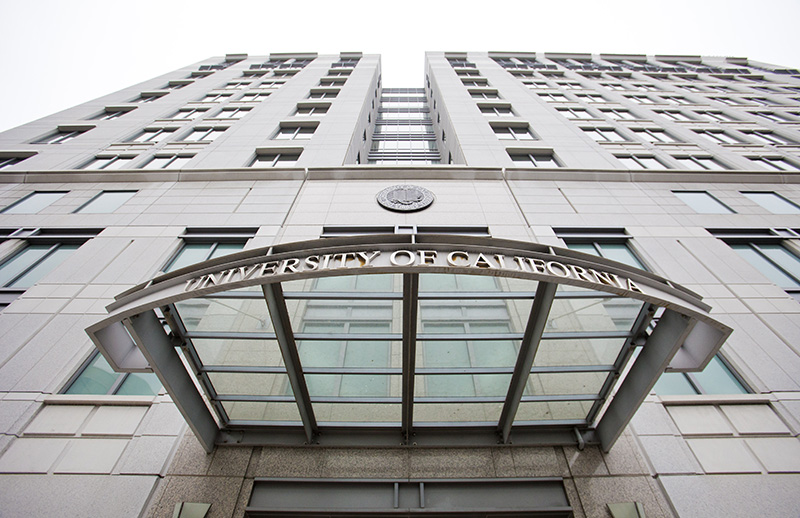The San Diego City Council voted unanimously to appeal the Public Employment Relations Board’s ruling that orders the city to rescind Proposition B on Jan. 12. After the city files its appeal, the Fourth District Court of Appeals will review the case and make a verdict on whether to uphold or reject PERB’s decision.
According to PERB’s Dec. 29 ruling, the City of San Diego violated state law in 2012 by placing Prop B — an initiative that replaced pensions for San Diego city employees with 401(k)-style retirement plans — on the ballot without meeting or conferring with labor groups.
San Diego’s City Attorney Jan Goldsmith deemed PERB’s ruling unconstitutional and outside of its jurisdiction. He argued that Prop B was in fact an initiative organized by private citizens, and therefore, the city was not obligated to meet with unions.
“PERB is trying to create new law by declaring that a citizen initiative – one that was placed on the ballot by 116,000 citizen signatures and approved by 66 percent of citizen voters – should be unwound because its terms were not separately negotiated with union leaders,” Goldsmith stated in a Jan. 12 press release. “The people’s right to initiative is guaranteed by the California Constitution. This right cannot be bargained away in a back room, or stolen from the people by a government agency.”
However, General Manager of the San Diego Municipal Employees Association Mike Zucchet, whose labor union was the lead plaintiff in the PERB action, defended the ruling. He told the UCSD Guardian that Jerry Sanders, San Diego’s mayor at the time, utilized the power and resources of his office to get Prop B onto the ballot, negating the possibility of it being a citizen initiative.
“We demonstrated that Mayor Sanders and his office conceived of and drafted Prop B with the use of city resources, city staff and under the color of authority of his office, effectively making Prop B a city initiative,” Zucchet said. “After a week-long hearing that included Mayor Sanders and members of his staff testifying under oath, the PERB Administrative Law Judge upheld our complaint. And now the full PERB Board has also upheld our complaint.”
The ruling also orders the city of San Diego to reimburse its employees for any losses incurred due to the implementation of Prop B as well as a 7 percent interest penalty. According to Zucchet, the city has hired approximately 2,000 employees since the initiative took effect in July 2012,, all without pensions.
Furthermore, he stated that while it has been active, Prop B has made it more difficult for the city to attract talented workers, causing the city’s quality of services to suffer.
“Although supporters of Prop B promised voters that San Diego would be the ‘leader’ in pension reform and that other jurisdictions would follow, we remain the only city in California that does not offer defined benefit pensions to new hires,” Zucchet said. “In a competitive job market, San Diego is now having a lot of trouble hiring new employees, and then retaining those that we do hire. Public safety, infrastructure, neighborhood services and everything else the city is doing or trying to enhance is suffering because the city can’t effectively hire qualified employees.”
President of the Police Officers Association Brian Marvel, whose labor union does not fall under the purview of PERB, not only agreed that San Diego is no longer as competitive of an employer as other cities but also argued that the initiative has also had a negative impact on retirement security.
“Retirement security is going to be a national issue rising to the level of a crisis in a few short years,” Marvel told the Guardian. “We should be looking at ways to increase opportunities for all folks to invest in defined benefit plans … Hopefully people will recognize the broader issues and rebuke the folks trying to destroy retirement security.”
Goldsmith, however, rebutted that whether or not one agrees with the content and effects of Prop B, PERB’s ruling grants more power to union leaders than to citizens.
“Even people who opposed Proposition B understand that the PERB decision is an unconscionable overreach that gives union leaders the power to thwart the public’s will,” Goldsmith said.
Nevertheless, Zucchet expressed that he and his organization are determined to get Prop B rescinded so that they can make the city a better place for its residents to live and work.
“Prop B is literally costing San Diego and its citizens money, and it is only going to get worse,” Zucchet said. “We will continue to litigate Prop B because it is bad for our city, and when the day comes that a final ruling is in on the legality of Prop B, we will work with the city to move forward.”







